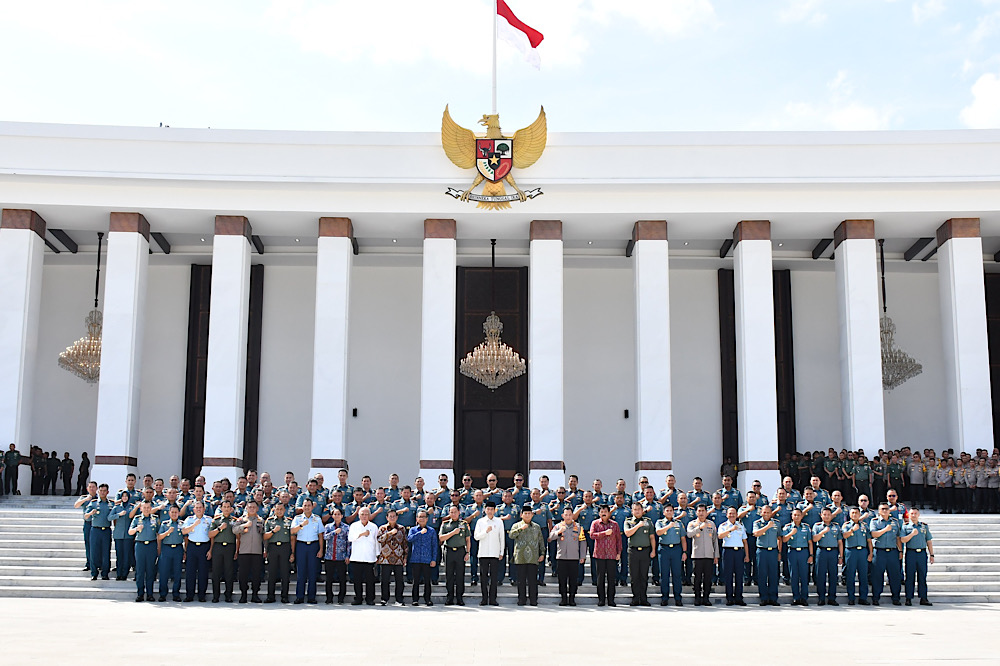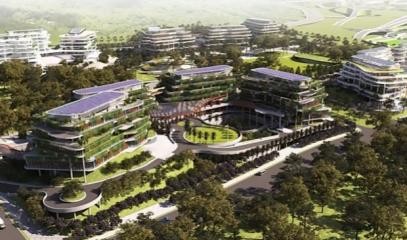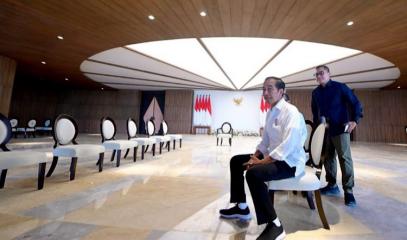The new capital Nusantara opens (partially) to the public
Indonesians will be able to visit it upon request and with limited access for a maximum of 300 people per day. Only some areas can be visited, smoking is prohibited. Outgoing President Widodo in the new centre where he will spend his last days in office. The completion of the work, which should be completed within the next two decades, is still far off.
Jakarta (AsiaNews) - The new Indonesian capital, IKN Nusantara, has been open to the public: since 16 September, citizens have been able to visit it, although access is still restricted to some specific areas, including Plaza Seremoni and Taman Kusuma Bangsa Nusantara, while others are forbidden to the public.
‘We have to limit,’ emphasises the spokesman for the new metropolis Troy Pantouw, “the quota of potential visitors; the maximum is 300 people per day,” with a timetable that runs from 9am to 5pm local time. The restrictions on access and the use of quotas, the spokesman adds, ‘are related to issues of security and public order’.
Visits, he explains in a note, will be guided and under strict surveillance, subject to authorisation by the relevant offices; guests will be transported to areas open to the public - and where smoking is prohibited - in electric vehicles. The aim of the authorities is to show Indonesians how work is progressing in the new capital, which has already been enthusiastically joined by hundreds of visitors, despite the limited quotas.
Before officially leaving the leadership of the country, President Joko ‘Jokowi’ Widodo wanted to keep his promise to the nation: to work every day in Nusantara, the new capital in East Kalimantan Province. His term of office is scheduled to end on 20 October and he will be replaced by his current Defence Minister, Gen. (ret.) Prabowo Subianto. At the same time, his eldest son Gibran Rakabuming Raka will be the new vice-president.
The main and significant events that Jokowi held during his working stay in Nusantara include the final plenary meeting with all ministers and senior government officials. In addition, a large meeting was held on 12 September with all the commanders of the Indonesian Armed Forces (TNI) and the police force, with the outgoing head of state acceding to a request made by the institutions.
Among the burning issues raised by Jokowi was his statement that Nusantra still needs time and work to be completed. ‘I am convinced,’ he added, ’because of the efforts of the president-elect [Prabowo Subianto] that all aspects will be addressed and the missing parts completed much more quickly. However, my personal intention in bringing you here is that you will have a much better understanding of the transformation of our nation, such as the green environmental complex, green transport including electric vehicles).
‘This is our future world,’ Widodo concluded, in which “renewable energy will become the backbone of our daily lives”. Finally, the outgoing president expressed ambitious dreams of ‘Golden Indonesia 2045’, in which the Gross Domestic Product (GDP) is expected to reach over USD 23,000 per capita.









.png)










